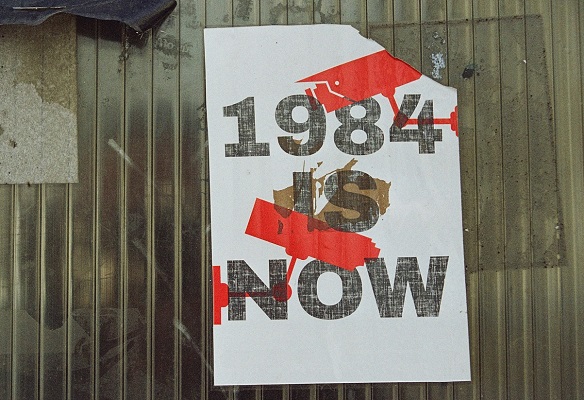If you search Biden Presidential Policy Directive 28, the results tell you it secures data and privacy of signals intelligence data. What it actually does is allow the Feds to invade your digital privacy, indiscriminately spy on everyone, and hide it from you in the name of national security.
Big Brother
The original Policy Directive 28 was put in place by Barak Obama in 2014. It addressed the need for US intelligence services to collect bulk cell phones, internet, or other digital communications as part of their national security mission. But it included basic protections for privacy, civil liberty, and due process (like requiring warrants) for American citizens -at least as lip service.
Joe Biden just erased all those privacy protections while leaving the mandate to collect bulk electronic intelligence.
PPD-28 is hereby revoked except for sections 3 and 6 of that directive and the classified annex to that directive, which remain in effect.
What sort of protections were removed? Section 1 is revoked, which states that:
The collection of signals intelligence shall be authorized by statute or Executive Order, proclamation, or other Presidential directive, and undertaken in accordance with the Constitution and applicable statutes, Executive Orders, proclamations, and Presidential directives.
and that,
The United States shall not collect signals intelligence for the purpose of suppressing or burdening criticism or dissent, or for disadvantaging persons based on their ethnicity, race, gender, sexual orientation, or religion. Signals intelligence shall be collected exclusively where there is a foreign intelligence or counterintelligence purpose to support national and departmental missions and not for any other purposes.
With Biden’s changes, these protections are gone, which means any government agency can collect or use any digital data for any reason at any time. A Right reiterated in Section 2 is now also revoked.
In no event may signals intelligence collected in bulk be used for the purpose of suppressing or burdening criticism or dissent; disadvantaging persons based on their ethnicity, race, gender, sexual orientation, or religion; affording a competitive advantage to U.S. companies and U.S. business sectors commercially; or achieving any purpose other than those identified in this section.
The director of National Security is also no longer required to maintain or report the list of permissible uses of bulk digital data grabs, so anything goes.
Section 4 of the 2104 order is also gone, which outlined how,
All persons should be treated with dignity and respect, regardless of their nationality or wherever they might reside, and all persons have legitimate privacy interests in the handling of their personal information.[7] U.S. signals intelligence activities must, therefore, include appropriate safeguards for the personal information of all individuals, regardless of the nationality of the individual to whom the information pertains or where that individual resides.
There are no longer limits on the collection, sharing, retention, or publication of digital information. The safeguards established in PPD-28 (2014) for oversight are also revoked, as are any reporting requirements in section five.
The only portions of the original Presidential Policy Directive on Signals Intelligence Activities are the justification for collecting it, hiding it, and the President’s right to use it however they see fit to protect the United States.
The Feds just gave themselves permission to collect any digital data they can scoop up and use it however they see fit.
Question?
The New Hampshire Bill of Rights, Article 2-b, states, “An individual’s right to live free from governmental intrusion in private or personal information is natural, essential, and inherent.”
Biden’s revocation of protection in PPD-28 clearly violates that right.
Will New Hampshire object? Will it protect its citizens? Defend them from any Federal action resulting from data collection under the new, amended Presidential Policy Directive on Signals Intelligence Activities.
Can they?
I don’t think they can or will, which begs another question. Can citizens seek redress in the courts for violations against their Constitutionally protected right to privacy? And if they can’t, what course of action is available to them for the violation of their first amendment right to redress of grievances?
